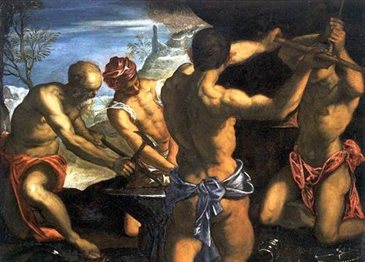Publication of Nottingham Medieval Studies Vol. 63: Heretical Self-Defence
Nottingham Medieval Studies is pleased to announce the publication of Volume 63 (2019) – a special issue featuring the proceedings of the ‘Heretical Self-Defence’ conference organised by the Medieval Heresy and Dissent Research Network (MHDRN) and hosted here at Nottingham at Easter, 2018.
The conference addressed themes and questions raised in modern historiography of medieval Christian heresies from the specific perspective of highlighting historical agency on the part of those accused of it.
Each of the articles highlights episodes or strategies of resistance by groups and individuals from the second to fifteenth centuries, from England to the Eastern Mediterranean, from the perspective of the accused. Across this long period, dissident groups adopted heresiological strategies in their attempts at self-defence in ways which highlight how the boundary between orthodoxy and heresy was subjective, contingent and shifting.
The articles collectively indicate that accusations of heresy and responses to them were struggles over the very nature and limits of orthodoxy itself and the discourses and processes by which it was defined and policed.
The volume demonstrates the value in integrating consideration of the actions and arguments of those accused of heresy in the Middle Ages with the wider historical discourse surrounding the subject. Not only does this special issue open up new ways of thinking about specific societies and events covered in depth in its articles, it also reinforces the realisation that medieval heresy controversies are stories with multiple sides.
The volume is dedicated to Bernard Hamilton who sadly passed in 2019. The authors and editors acknowledge his enormous influence in the field of medieval heresy studies, and he is very much missed by his former students and scholars, particularly those of Catharism.

Articles in Nottingham Medieval Studies Vol.63
PETER DARBY, ROB LUTTON AND CLAIRE TAYLOR, ‘Introduction: Heretical Self-Defence in late Antiquity and the Middle Ages’.
RAÚL VILLEGAS MARÍN, ‘The Best Defence is a Good Offence: Arnobius the Younger’s Praedestinatus and the Debates on Predestination in Mid-Fifth-Century Rome’.
PAUL LINJAMMA, ‘The Heresiology of the Heretic: The Case of the Valentinians’.
CARL DIXON, ‘Paulician Self-Defence and Self-Definition in the Didaskalie’.
MAJA ANGELOVSKA-PANOVA, ‘’Turning Towards Heresy: Bogomils and Self-Defence’.
SAKU PHIKO, ‘Talk, Communication and the Avoidance of Inquisitors in Thirteenth-Century Languedoc’.
JUSTINE L TROMBLEY, ‘Self-Defence and its Limits in Marguerite Porete’s Mirror of the Simple Souls’.
FIONA SOMERSET, ‘Scripting Defence: Textual Arguments and their Readers amid the Pursuit of Heresy in England’.
ESTHER LEWS, ‘Resistance, Self-Defence, or sticking up for your Friends? A Discussion of Purgation in the Prosecution of Fifteenth-Century Lollardy’.